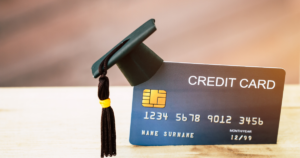To achieve financial stability, you need to first understand the basics of money management. Unfortunately, personal finance classes aren’t always offered in schools, so many Americans reach adulthood without ever having learned the basics of finance. However, non profit credit counseling agencies like ACCC have plenty of financial literacy resources to share! Read on to learn our tips, tricks, and techniques for money management!
Cornerstone of Money Management: Budgeting
The first and most important step to managing your money properly is to create a budget. A budget is an outline of your income and expenses. It helps to ensure you aren’t spending more than you make every month. How do you start a budget? Well, figure out your spending habits first! Track your expenses for a month or so to see where your money is really going. You might be surprised! Find areas where you can cut back if you notice you’re spending more than you thought you were.
The biggest expenses for most people are housing, transportation, and food. While lowering housing expenses might be a tough to do immediately, start looking into cheaper apartments or houses for when your lease is up. Transportation can also be very expensive, but this one is a bit easier to change right quickly. Try to bike or take public transportation more often if you live in or near a city. Also, check for cheaper car insurance options. Finally, to cut down on your food expenses, limit the number of times you go out to eat or get takeout every week. Learn to cook quick and easy dinners with affordable ingredients, and use coupons when you go grocery shopping.
Stay on top of your debt payments.
High interest credit card debt can add up quickly and take a huge toll on your financial life. This is why it’s important to pay your credit cards and other debt on time and in full every month. Mistakes happen though, and if your debt is becoming unmanageable, there are places that can help. Nonprofit credit counseling agencies can help you pay off your debt through a debt management program.
Alternatively, if you choose to pay off your debt on your own, there are two main methods of debt payoff: Debt Avalanche and Debt Snowball. The Debt Avalanche Method involves paying off your account with the highest interest rate first. The Debt Snowball Method, on the other hand, involves paying off your account with the lowest balance first. While the Debt Avalanche Method will save you the most money, the Debt Snowball Method may help you stay more motivated since you’ll be seeing more immediate results.
Automate Your Savings
Saving money for emergencies and other financial goals is another important part of money management. Of course, it’s easier said than done. To make saving money easier, automate your savings. That way, you won’t have to make a conscious effort to transfer money into a savings account every month. It’ll just automatically be there! You won’t be tempted to spend it either, since you can’t miss what you don’t see in your checking account. You don’t have to save a lot each month if you can’t afford to just yet. Starting out with even $50 a month will add up – by the end of the year, you’ll have $600!
Check your credit report & credit score.
You should check your credit report annually at the very least. If you visit AnnualCreditReport.com, you can get a free copy of your credit report from each of the three major credit bureaus once a year. It’s important to check your credit report for any errors or suspicious activity. If you are thinking about buying a house or car, you should definitely check your credit report before you apply for a mortgage or car loan.
It’s equally important to check your credit score, which is an indicator of your trustworthiness as a borrower. A good credit score is around 750, so if your score isn’t quite where you want it to be to get the best interest rates on a loan, make an effort to improve it. The biggest factor that goes into determining your credit score is payment history, so be sure to pay on time every month. Also, keep your credit utilization under 30 percent.
Final Money Management Tips
Financial education is an ongoing process. In order to perfect your money management skills, continue to educate yourself through various financial literacy resources. These can include personal finance blogs (like this one!), podcasts, and YouTube videos. There are also personal finance books available for every age!
If you struggle to pay off debt, ACCC may be able to help. Sign up for a free credit counseling session with us today.






